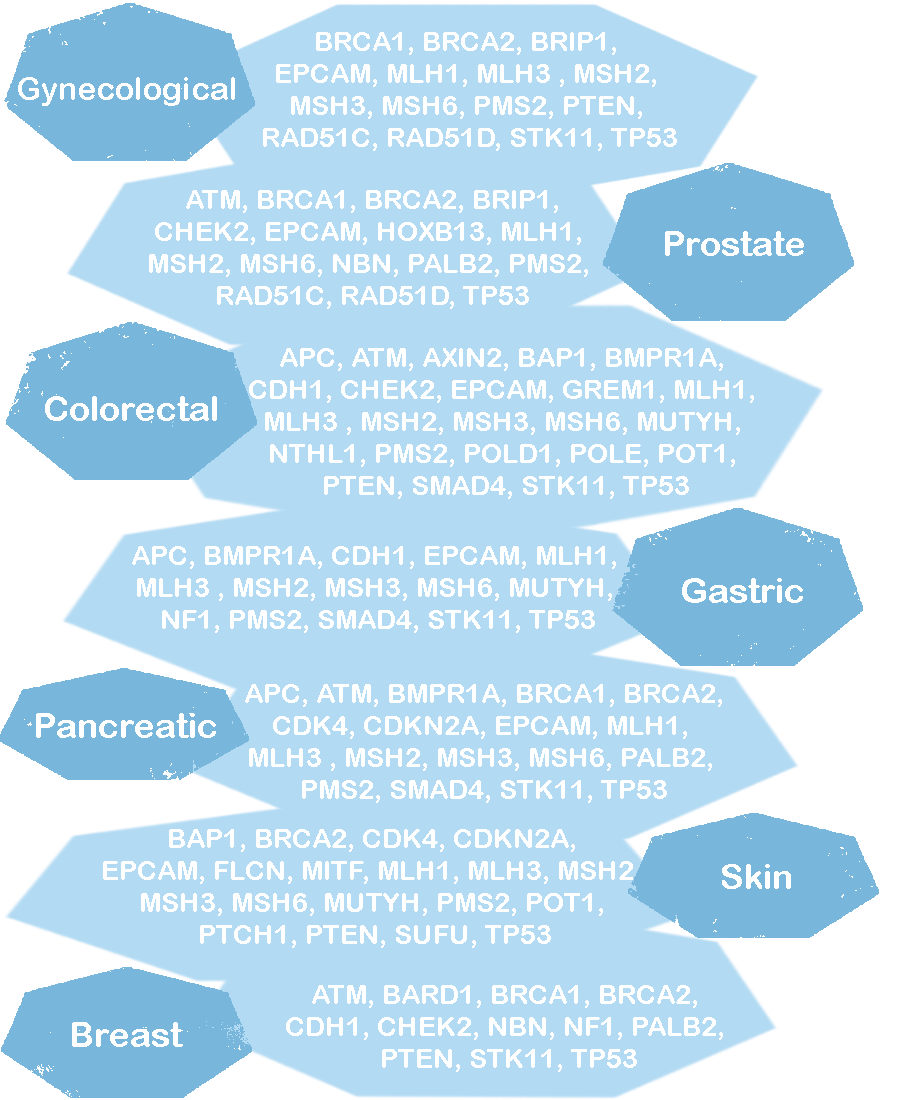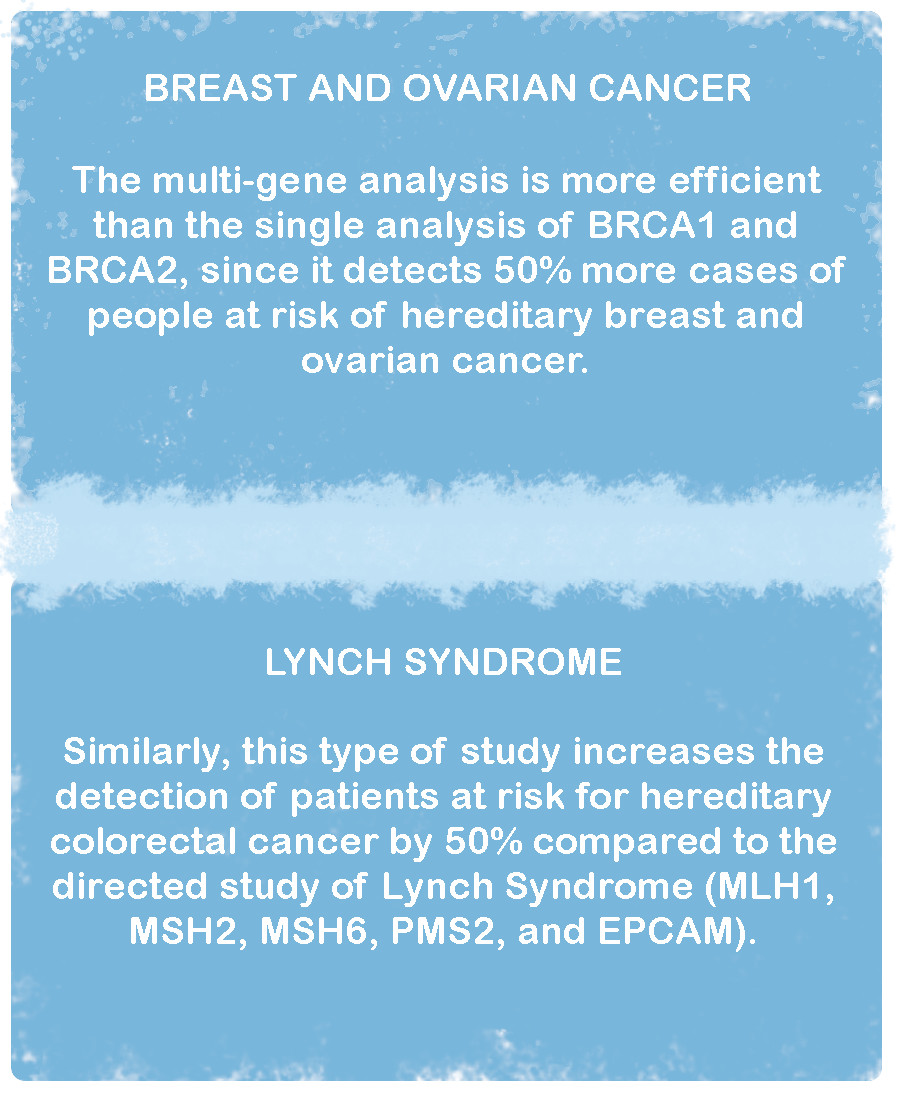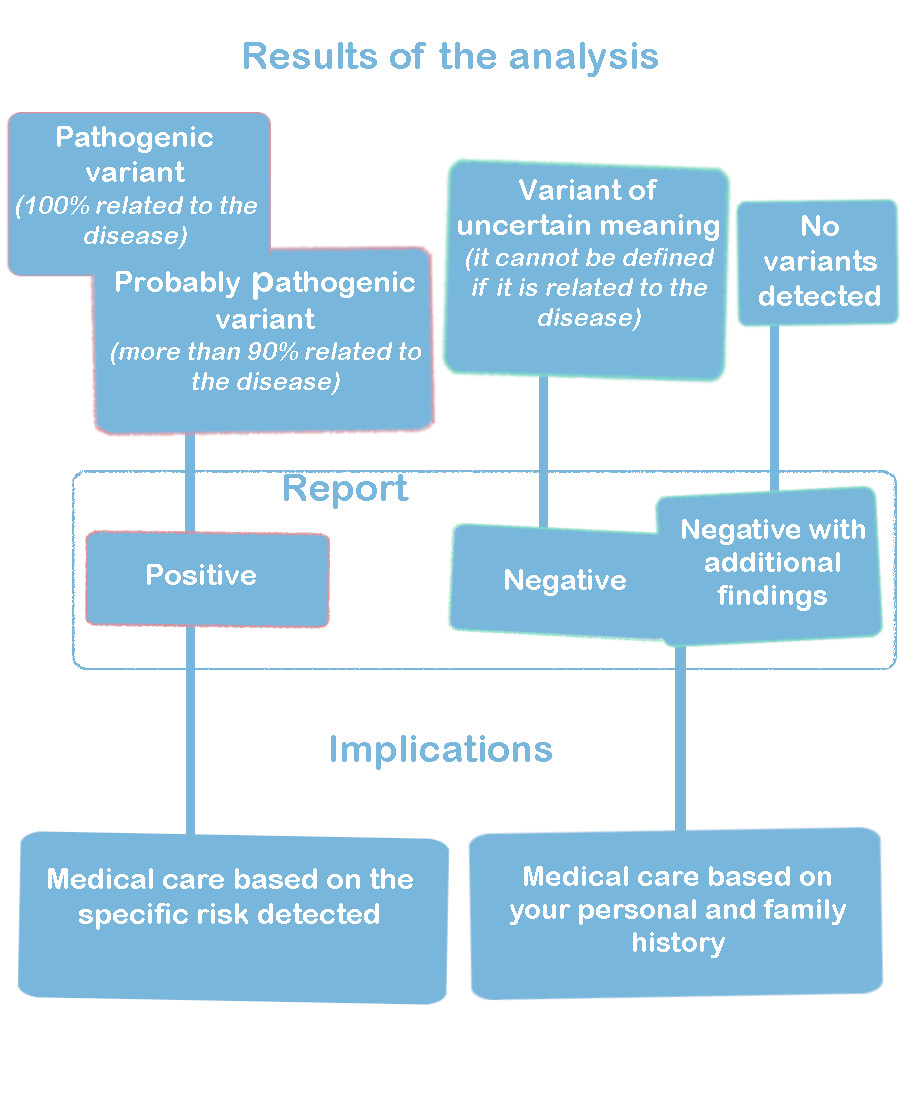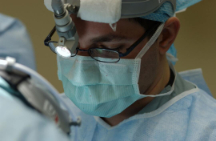
Hereditary cancers
Screening for risks of the following cancers: breast, ovarian, prostate, pancreatic, stomach, colorectal and skin.
is due to cancer, according to 2017 data.(1)
ensures 90% survival.(2)
reaching 20% in certain types of cancer.(3)
are due to mutations in the BRCA1 and BRCA2 genes.(4)
- Study the following hereditary cancer syndromes:
- Lynch Syndrome
- Gorlin Syndrome
- Birt-Hogg-Dube Syndrome
- Hereditary breast and ovarian cancer syndrome
- Cowden Syndrome
- Li-Fraumeni syndrome
- Nijmegen Syndrome
- Peutz-Jeghers syndrome
- Pancreatic cancer/melanoma syndrome
- Juvenile Polyposis Syndrome
- Hereditary Prostate Cancer
- Hereditary diffuse gastric cancer
- Gliome
- Melanome
- Type 1 Neurofibromathose
- Familial adenomatous polyposis
- Polyposis associated with MUTYH
- Associated adenomatous polyposis POLD1 and POLE
- Hereditary mixed polyposis syndrome
- BAP1-associated tumor predisposition syndrome
- Identifies variants in 40 genes related to cancer and hereditary cancer syndromes.
- A genetic counsellor approved by medmesafe will accompany you before and after the analysis by video consultation.
- Counting from the reception of the sample in the laboratory.
- Only available in Spain at the moment
- Collection of saliva.
- Whole exome sequencing (WES) with illumina platform (HiSeq X10, NovaSeq 6000).
- Average coverage 110x sequencing >97% at ≥20x.
- Compliant with the Laboratory Developed Test (LDT) regulations and performed in a CLIA-certified laboratory (CLIA#22D2089381)
- CAP Accreditation (College of American Pathologists).
- All the reports are reviewed by an expert medical team with more than 10 years of experience in Whole Genome and Exome sequencing, including members of the Personal Genome Project of Harvard Medical School.
- Possible outcomes:
- Pathogenic variants, probably pathogenic variants and variants of uncertain significance (VOUS) are reported.
- Technical limitations:
- Inversions and complex structural rearrangements such as translocations are not detected.
- For regions of high homology, del/dup analysis is not performed.
- Copy number variants in APC, ATM, CHEK2, GREM1, MSH6, PALB2, PMS2, PTEN, STK11, and TP53 are detected at multi-exon resolution (2 or more exons).
- EPCAM variant detection is limited to del/dup analysis of the 3’ end of the gene.
- The genes included are associated with several cancer types, however there may be other genes associated with hereditary cancer that are not covered by this panel.
- No secondary findings are reported outside the established panel.
Testimonials
Rod Paley

Graeme McKenzie

Daniel Crigan




- To find out if your genes determine that you are at risk for these cancers.
- If you have one, it is recommended to know if it will be transmitted to your descendants and to personalize the treatments.
- If you have a family history of cancer diagnosed before age 50.
- If there are diagnoses of cancer in different family members and in different generations.
- If you have several types of tumors.
- If you have cancer, in order to know its possible hereditary character.
- If a pattern of cancer typical of certain hereditary predispositions is present in your family (ex: colorectal and endometrial cancer in the Lynch Syndrome).
How does it work?
-
Select desired analysis and a specialist, then you have a video-consultation.
-
Receive a sample collector kit at home that will be picked up by a courier.
-
One of our partner labs makes the analysis.
-
Your healthcare professional presents your results via videoconference.
You can help by sharing this information with your contacts or doctor







 Download results report
Download results report

